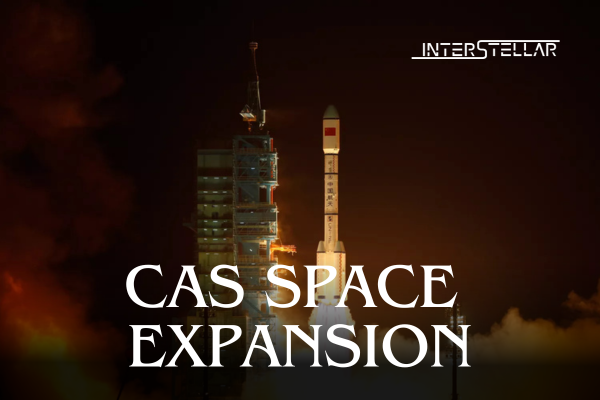CAS Space Expands with Advanced Rockets and Tourism Plans
Chinese commercial launch provider CAS Space expands into international markets to drive long-term growth. Originally a commercial spinoff of the Chinese Academy of Sciences (CAS), the company has established itself with its Kinetica-1 (Lijian-1) rocket, which has achieved four successful launches since its 2022 debut. The company’s main customer is Changguang Satellite Technology (CGST), a CAS subsidiary focused on building an Earth observation satellite constellation.
Expanding Capabilities with New Rockets and Tourist Flights
CAS Space’s upcoming Kinetica-2 rocket, scheduled for a September 2025 launch, will offer increased payload capacity—up to 7,800 kg for sun-synchronous orbits and 12,000 kg for low Earth orbits—serving a broader range of clients. Aiming for reusability, CAS Space plans to begin recovery tests for Kinetica-2 by late 2026. In addition to satellite launches, CAS Space recently won a contract to develop a low-cost cargo transport system for China’s Tiangong space station and aims to introduce suborbital tourist flights by 2027.
With a projected 5-8 launches next year, including 2-3 Kinetica-2 missions, CAS Space is actively working to grow its customer base beyond China. “There is lots of competition going on right now,” said Liu Weipeng, CAS Space’s international marketing manager, at the International Astronautical Congress (IAC) in Milan on October 17. “We need a big market here [in China], but it’s not big enough for all these large companies.”
Competition and Challenges in Expanding Globally
CAS Space competes with both Chinese startups and state-owned enterprises. Local rivals include commercial launch companies like Landspace, Galactic Energy, Space Pioneer, iSpace, and Deep Blue Aerospace, as well as the state-owned China Aerospace Science and Technology Corporation (CASC) and its Long March rockets. The emerging suborbital tourism market also intensifies competition; Deep Blue Aerospace has already sold seats for 2027 flights.
Expanding internationally, however, presents additional hurdles. US International Traffic in Arms Regulations (ITAR) largely restrict CAS Space from entering the American and European markets, complicating efforts to compete with global players like SpaceX. “It’s difficult…especially with all the regulations in place,” Liu said, acknowledging ITAR as a significant barrier. Additionally, Liu noted that misconceptions about transparency within Chinese companies affect CAS Space’s efforts to break into global markets. To counter this, CAS Space has been actively sharing updates and engaging with international audiences on X (formerly Twitter) to change perceptions.
Support from State and Private Investors for Global Outreach
CAS Space operates with a blend of government backing, private investment, and strategic partnerships. Its 2021 funding round raised $31 million from investors, including CITIC Juxin, part of the state-owned CITIC Group Corporation, and Zhongke Chuangxing, a CAS accelerator fund. This mix of support gives CAS Space resources to push into new markets while continuing to innovate. The company plans to add flexibility to its launch capabilities by expanding operations to the new Hainan spaceport near Wenchang and starting sea launches in 2024.
Aiming to bolster space tourism, CAS Space has also partnered with China Tourism Group. This venture includes a plan to use cruise ships for spectators to view launches from the Wenchang spaceport, supporting the company’s broader tourism vision.
Aiming for International Payloads on Future Launches
Liu expressed optimism about securing non-Chinese payloads on upcoming launches, stating, “We wish to make the first step for the Chinese commercial space launch industry in the global space market.” The company’s presence at IAC reflects its ambition to attract international clients despite regulatory and competitive challenges.
CAS Space’s strategy to increase global outreach, backed by innovative rocket technology, strategic funding, and emerging tourism offerings, signals its readiness to make a mark on the international space industry.





